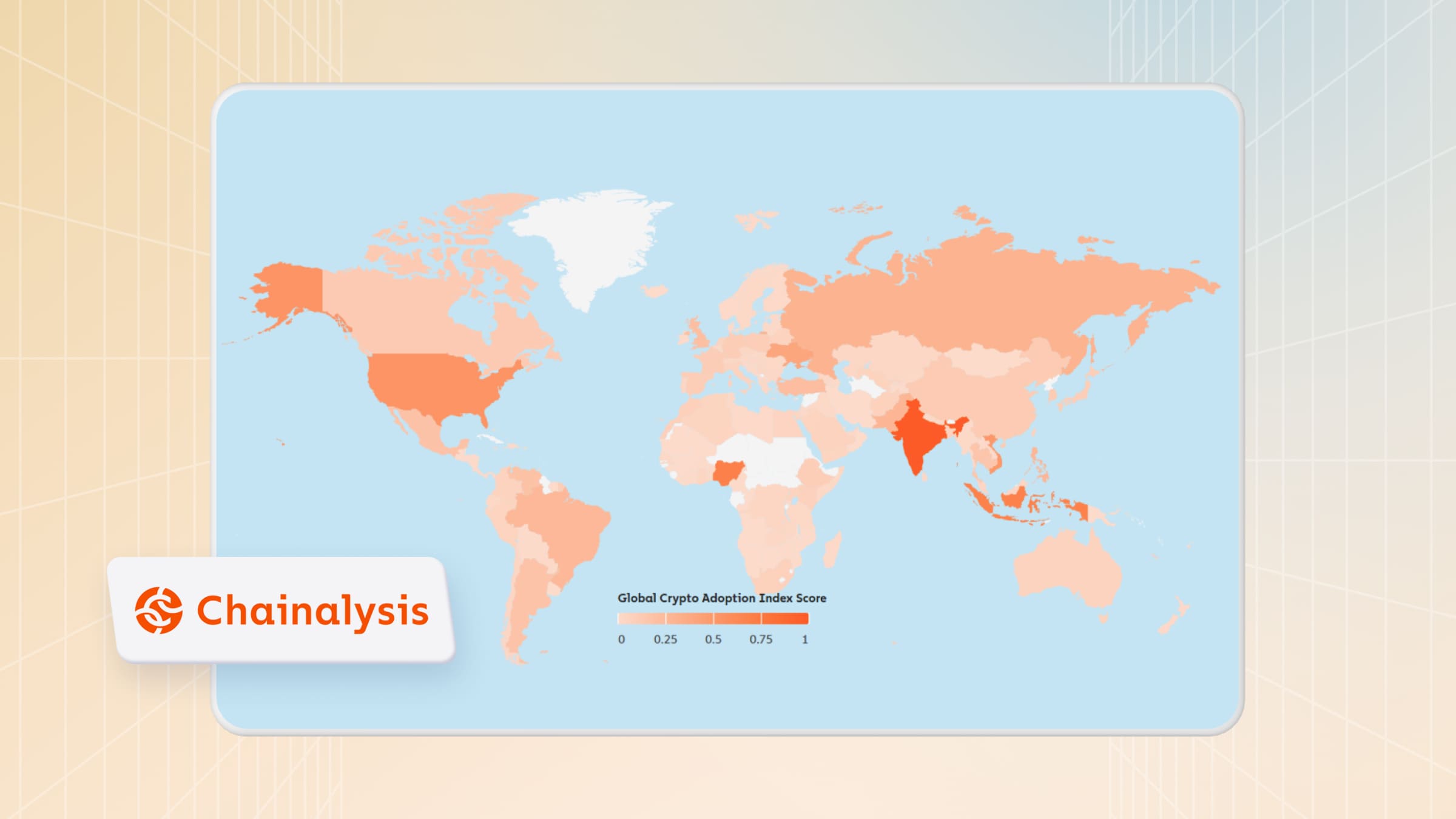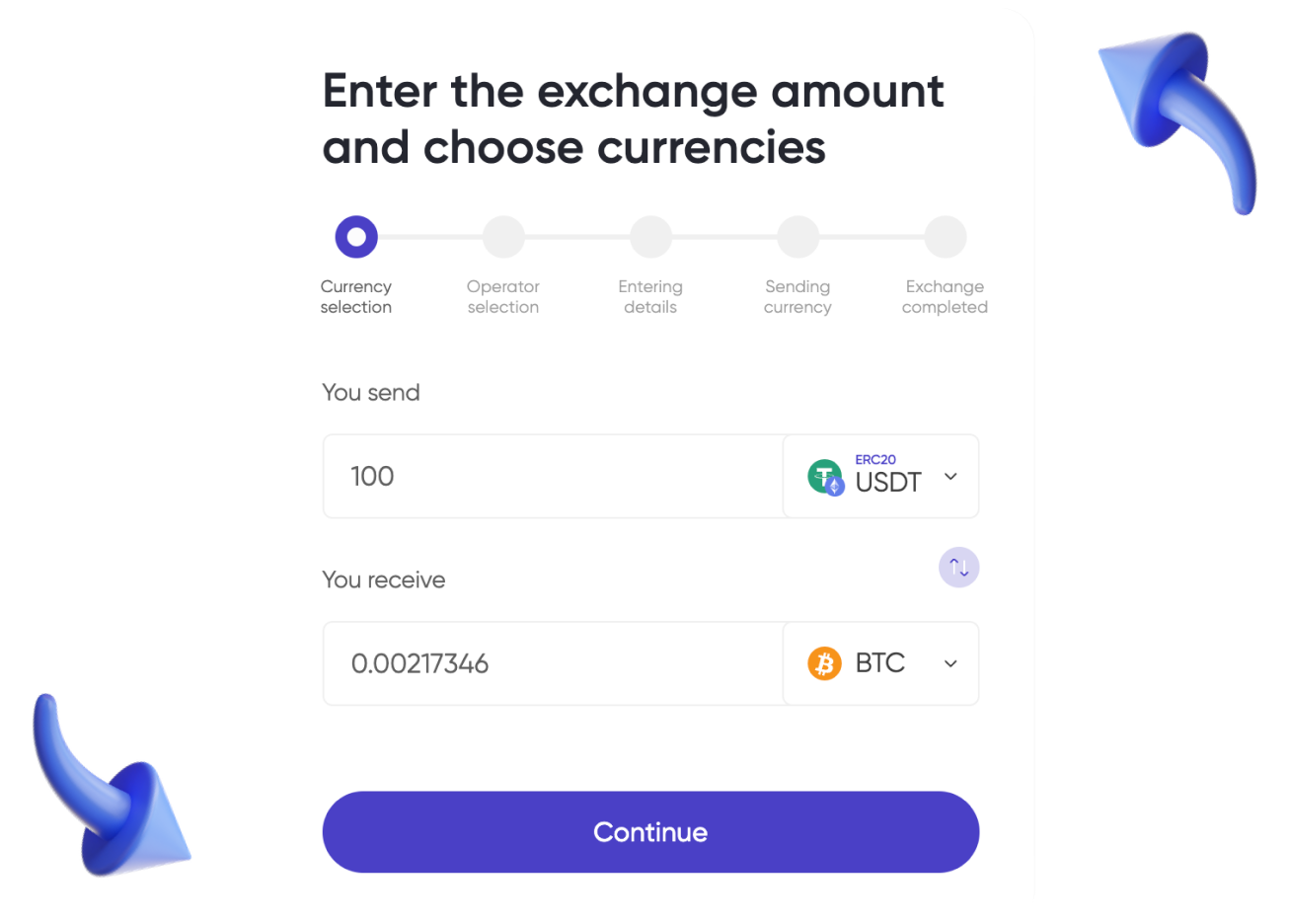Cryptocurrencies are becoming more popular around the world: users are beginning to see them not only as an innovation and investment tool, but also as a means of payment and a way to store funds. Nevertheless, the demand for digital coins is not the same in all countries.
We offer an overview of the countries where cryptocurrency is most actively used and/or legalized as a means of payment.
Cryptocurrency: What You Need to Know
A cryptocurrency is a digital currency that functions independently of banking organizations and is not backed by real assets. It exists only in electronic form and functions thanks to cryptographic algorithms, i.e. data encryption.
The value of cryptocurrencies is not pegged to real assets, but depends on the demand for a particular coin, market conditions and other factors. This makes cryptocurrency subject to high volatility or fluctuations in the exchange rate.
Standard cryptocurrency does not depend on government or financial organizations and operates within a decentralized system. All participants of such a system are equal and have the same access to information about all transactions made within the blockchain network.
Cryptocurrencies Adoption Assessment Criteria
Before considering which country uses cryptocurrency most actively, let's tell you on the basis of what criteria the rating was built:
- The total value of the cryptocurrency on centralized crypto exchanges (CEX). The assessment is performed taking into account the average income in the selected country. The total value of the digital assets on various exchanges received by residents of different countries is compared to the GDP (PPP) per capita.
- Trading volume on centralized exchanges (CEX). Reflects the activity of non-professional users. The total value of cryptocurrencies received by the country's residents when dealing with centralized exchanges is also used for evaluation. Unlike the first criterion, only retail transactions of less than $10,000 are taken into account.

- The value of cryptocurrency used in DeFi protocols. The method of evaluation is similar to the first one. Instead of centralized cryptocurrency exchanges, it is considered which countries' cryptocurrency flows through DeFi protocols in greater volume. GDP is also taken into account in the comparison.
- DeFi retail activity. This metric assesses in which country cryptocurrency is most frequently used to pay through DeFi protocols. Only individual traders are taken into account: transactions of less than $10,000 are evaluated.
TOP-10 Countries by Cryptocurrency Use in 2024
Let's take a closer look at the countries using cryptocurrencies in 2024 most actively according to Chainalysis.
1. India
India took the first place in the list of countries on the use of cryptocurrency, despite quite serious restrictions from the state. For example, the tax on cryptocurrency income is 30% in India, and in December 2023, access to a number of exchanges was restricted. Nevertheless, the status of digital currencies is currently improving: in particular, the Binance exchange was unblocked.
2. Nigeria
Sub-Saharan Africa has the smallest cryptocurrency economy with only 2.7% of the global total. Nevertheless, one of the countries in this region took the second place in the ranking. In addition, this region is leading the way in the adoption of DeFi protocols.
Cryptocurrency in Nigeria is actively used for both business transactions and private transfers. It also serves as a hedge against inflation.

3. Indonesia
Indonesia ranked first in total and retail volume of transactions via DeFi protocols, as well as third place in the overall ranking. This country has the highest growth rate of crypto transactions in its region at nearly 200% per year.
Most of the activity is driven by cryptocurrency trading. In addition, Indonesia has shown a significant increase in the number of crypto investors and interest in meme coins in 2024.
4. United States
In early 2024, exchange-traded funds that directly invest in Bitcoin, Bitcoin ETFs, were launched in America for the first time. The emergence of these funds led to an increase in cryptocurrency transactions in all states of the country.
Private cryptocurrencies are less relevant in the US than in other countries. What characterizes the United States is the abundance of crypto projects and the growth of large crypto transactions.
5. Vietnam
In Vietnam, cryptocurrencies are used to access banking services, invest and make transfers. In addition, many users see digital currencies as a way to protect from the instability of the country's fiat currency.
In addition to standard transfers and investments, cryptocurrency is used in this nation as part of play-to-earn games, where it acts as a reward for players.
6. Ukraine
Ukraine's position in the list of countries with cryptocurrency began to change after the events of February 2022 with the country ranking third in the world ranking in 2022. Although in 2024 Ukraine was already in the sixth place, digital «money»in the country is still actively used mainly by private users to make international payments.
7. Russia
One of the main reasons for the use of cryptocurrency in Russia is the sanctions, which have made it inaccessible, inconvenient or unprofitable to make cross-border transactions in the usual ways.
Both private users and businesses are turning to digital currencies to pay for foreign services, work with clients and employers from abroad, and make transfers to other countries.

8. Philippines
As in Vietnam, users in the Philippines are interested in cryptocurrency as a way to make international transfers and as a reward in play-to-earn games.
In August 2024, the country's government approved the introduction of a PHPC stablecoin pegged to the Philippine peso. The currency is planned to be used to reduce the cost of cross-border transactions.
9. Pakistan
Although the authorities claim that Pakistan will never become a country that has legalized cryptocurrency, digital money is actively used in the country and the cryptosphere remains unregulated by the state. The main purpose of cryptocurrency for Pakistanis is to make international payments.
10. Brazil
Brazil has a well-developed primarily institutional crypto market, with the country experiencing a new growth in interest in crypto at the end of 2023. For example, the monthly volume of large transactions (over $1 million) increased by nearly 50% between the last quarter of 2023 and the first quarter of 2024.
Among the reasons for the popularity of cryptocurrencies are the diversification of investment portfolios and the gradual introduction of digital assets into the banking system.
What Are Cryptocurrencies Used For?
The popularity of cryptocurrencies in different countries can be attributed to various reasons:
- Inflation protection. In countries where the state currency is unstable and subject to high inflation, users are looking for a way to protect their savings. Cryptocurrency, particularly volatility-free stablecoins, can be used as a tool for this purpose.
- Payment for services. Crypto payments are available as a payment method in a wide range of foreign online services. Customers resort to crypto payments due to convenience, low fees and high security.

- Online shopping. Crypto payments are available on major marketplaces such as Amazon and eBay. In addition to marketplaces, it is possible to pay with cryptocurrency for orders in individual online stores — for example, digital «money» is accepted by such brands as Balenciaga and Gucci.
- Purchase of real estate and other expensive goods. Cryptocurrency payments are accepted by some real estate agencies (Fäm Properties, RealOpen), car brands (Tesla), airplane and yacht manufacturers. Jewels and jewelry can also be purchased with cryptocurrency through Samer Halimeh New York or JM Bullion, for example.
- Payments to vendors. Companies working with foreign suppliers often use crypto transfers. In addition to the security of such payments, the advantage is low commissions as the use of cryptocurrencies reduces the cost of making a transaction.
- Transfers to friends and relatives. In the private transfers sphere, cryptocurrency is also being used more and more actively. As a rule, users who cannot make international payments in fiat currency resort to crypto transactions.
- Travel payments. Cryptocurrency can be used to pay for transportation tickets, hotels and rented accommodation, ready-made tours and excursions. There are a number of travel services that accept crypto payments such as Bitcoin.Travel.
- Educational course purchases. Thanks to the convenience of cross-border payments, cryptocurrency has become a sought-after means of payment for infopreneurs aimed at audiences around the world. You can pay with digital curency for courses, master classes, trainings and much more.
- Investing. The volatility of cryptocurrencies makes them a popular tool for investment. Digital currency allows you to diversify your investment portfolio and earn on rate fluctuations. The exception is stablecoins, which are characterized by high price stability due to the provision of physical assets.

Countries That Have Legalized Cryptocurrencies
El Salvador
El Salvador became one of the first countries to recognize cryptocurrency as a legal way to make payments. Since 2021, Bitcoin has been considered an official means of payment on par with the dollar, and in 2022, the government decided to buy 1 BTC every day.
This investment continues into 2024. The main goal of integrating crypto into the financial system was to provide access to fast transfers, increase the stability of the economy and attract foreign crypto holders to the country.
UK
The UK is showing a trend of becoming a global cryptocurrency center. Back in June 2023, the Crypto Market Regulation Bill was passed, which treats cryptocurrencies as a regulated part of the financial sphere.
In September 2024, a bill was introduced in Parliament to address the legal status of digital assets and provide crypto holders with fraud protection.
US
Among the countries where cryptocurrencies are legalized is America: here the digital currency is recognized as a freely convertible currency and is in the legal field. Crypto exchanges and exchangers are registered with the Ministry of Finance and are subject to the requirements relevant to businesses in the financial services sector.
In January 2024, cryptocurrency exchange-traded funds were launched for the first time, enabling direct trading of cryptocurrency-backed shares.
EU countries
Bitcoin is authorized as a means of payment in European Union countries. Steps are gradually being taken to regulate the cryptocurrency sphere. Thus, in 2023, the law on supervision and consumer protection (MiCA) was adopted.
The new rules established by this act will begin to apply from December 2024. Crypto service providers are obliged to comply with information transparency standards and to counteract market manipulation.

Canada
Although cryptocurrency is not a nationally recognized means of payment in Canada, transactions are legal. Cryptocurrency services are considered financial service providers and must comply with the relevant laws. Digital currency transactions are taxed as capital gains or income from business activities.
Japan
Japan does not recognize cryptocurrency as a means of payment, but most users and companies (with the exception of banks) can use digital assets in transactions.
The country also regulates cryptocurrency services quite strictly. Rules include separate storage of assets of clients and organization, annual audits, mandatory storage of users' funds on cold wallets.
Australia
There is currently no strict regulation of cryptocurrencies in Australia. Bitcoin is considered property, the income from which can be subject to capital gains tax.
Nevertheless, the situation may change in the near future: thus, the introduction of a law is being considered, according to which all crypto services will be required to obtain a license as financial service providers.

Cryptocurrencies — a Relevant Means of Payment
Cryptocurrencies are actively used in a wide range of countries. Their popularity in different jurisdictions can be explained by various reasons such as access to international payments, investments, payment for goods and services. Regardless of the reasons, it is obvious that the relevance of digital currencies is increasing every year.


































